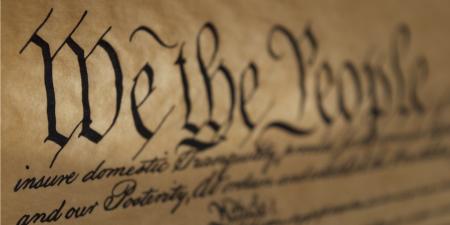Opinion 2.25 – The Use of Quarantine and Isolation as Public Health Interventions
Quarantine and isolation to protect the population’s health potentially conflict with the individual rights of liberty and self-determination. The medical profession, in collaboration with public health colleagues, must take an active role in ensuring that those interventions are based on science and are applied according to certain ethical considerations.
- To this end, the medical profession should:
a) seek an appropriate balance of public needs and individual restraints so that quarantine and isolation use the least restrictive measures available that will minimize negative effects on the community through disease control while providing protections for individual rights;
b) help ensure that quarantine and isolation are based upon valid science and do not arbitrarily target socioeconomic, racial, or ethnic groups;
c) advocate for the highest possible level of confidentiality of personal health information whenever clinical information is transmitted in the context of public health reporting;
d) advocate for access to public health services to ensure timely detection of risks and prevent undue delays in the implementation of quarantine and isolation;
e) help to educate patients and the public about quarantine and isolation through the development of educational materials and participation in educational programs;
f) advocate for the availability of protective and preventive measures for physicians and others caring for patients with communicable diseases.
- Individual physicians should participate in the implementation of appropriate quarantine and isolation measures as part of their obligation to provide medical care during epidemics (see Opinion E-9.067, “Physician Obligation in Disaster Preparedness and Response”). In doing so, advocacy for their individual patients’ best interests remains paramount (see Opinion E-10.015, “The Patient-Physician Relationship”). Accordingly, physicians should:
a) encourage patients to adhere voluntarily to scientifically grounded quarantine and isolation measures by educating them about the nature of the threat to public health, the potential harm that it poses to the patient and others, and the personal and public benefits to be derived from quarantine or isolation. If the patient fails to comply voluntarily with such measures, the physician should support mandatory quarantine and isolation for the non-compliant patient;
b) comply with mandatory reporting requirements and inform patients of such reports;
c) minimize the risk of transmitting infectious diseases from physician to patient and ensure that they remain available to provide necessary medical services by using appropriate protective and preventive measures, seeking medical evaluation and treatment if they suspect themselves to be infected, and adhering to mandated public health measures.
- Frontline physicians have an increased ethical obligation to avail themselves of safe and effective protective and preventive measures (for example, influenza vaccine).
Opinion 9.067 – Physician Obligation in Disaster Preparedness and Response
National, regional, and local responses to epidemics, terrorist attacks, and other disasters require extensive involvement of physicians. Because of their commitment to care for the sick and injured, individual physicians have an obligation to provide urgent medical care during disasters. This ethical obligation holds even in the face of greater than usual risks to their own safety, health or life. The physician workforce, however, is not an unlimited resource; therefore, when participating in disaster responses, physicians should balance immediate benefits to individual patients with ability to care for patients in the future.
In preparing for epidemics, terrorist attacks, and other disasters, physicians as a profession must provide medical expertise and work with others to develop public health policies that are designed to improve the effectiveness and availability of medical care during such events. These policies must be based on sound science and respect for patients. Physicians also must advocate for and, when appropriate, participate in the conduct of ethically sound biomedical research to inform these policy decisions. Moreover, individual physicians should take appropriate advance measures to ensure their ability to provide medical services at the time of disasters, including the acquisition and maintenance of relevant knowledge.



